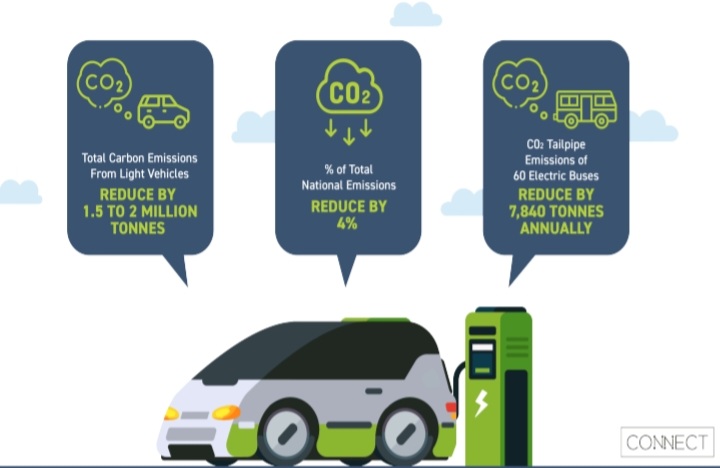How Pairing Renewable Energy With EVs Create Sustainability

By Yemi Olakitan
Electric vehicles (EVs) hold immense promise for a more sustainable future, especially when paired with renewable energy sources.
Transitioning to a grid powered by renewable energy—such as solar and wind—creates a virtuous cycle. As the grid becomes cleaner, the carbon impact of EVs decreases. Imagine charging your EV directly from the sun using solar panels—a win for both sustainability and cost savings.
By integrating renewable energy-based charging infrastructure—such as solar photovoltaic panels and wind turbines—we can minimize the environmental impact of EVs while ensuring convenient access for users.
Surprisingly, EVs can enhance grid resiliency. They can absorb excess power during off-peak hours and store it for future needs. This flexibility contributes to a more stable and resilient power grid
Continued advancements in battery technology are essential. Efficient energy storage allows EVs to operate seamlessly, even during peak demand periods. Combining renewable energy with EVs creates a powerful synergy—one that drives sustainability, reduces emissions, and propels us toward a cleaner transportation future.
Electric vehicles (EV) use electricity for power instead of petrol or diesel fuel.
This means that they rely on electricity to operate, which can come from a variety of sources. One of these sources is renewable energy.
Renewable energy sources are those that are naturally replenished, such as solar, wind, hydro and biomass sources. Renewable energy is considered a clean energy source because it has a low environmental impact and doesn’t release harmful emissions like fossil fuels do.
Electric vehicles run on rechargeable batteries, which need to be charged by electricity. This electricity can be sourced from renewable energy sources like wind and solar. In fact, renewable energy makes for an ideal energy source for electric vehicles because it’s cheap, reliable and clean.
For example, if your EV is powered by solar panels, you’ll be able to drive without consuming any carbon-based fuels. This means you reduce your carbon footprint significantly and also save money on fuel costs.
Similarly, if your EV is charging from a wind turbine or hydroelectric dam, then you can ensure that every time you drive, you’re generating electricity without emitting any harmful pollutants into the atmosphere.
Benefits of Electric Vehicles and Renewable Energy
Electric vehicles coupled with renewable energy could reduce greenhouse gas emissions, minimize dependence on fossil fuels, and spur innovation in the clean energy sector. Here are some of the benefits that electric vehicles and renewable energy offer: The biggest advantage of coupling electric vehicles with renewable energy is that it results in a reduction in greenhouse gas (GHG) emissions.
If EV owners switch from fossil fuel to electricity from renewable sources like wind and solar, their vehicles produce far fewer emissions, making them much better for the environment.
Electric vehicles running on renewable energy can reduce the world’s dependence on oil and coal. This dependence is a significant source of geopolitical tension, oil spills, and environmental pollution.
Renewable energy has become incredibly cheap in the past few years, making it an affordable means of energy generation. For instance, electric vehicle owners can tap into wind farms in regions where there is a surplus of electricity.
The adoption of electric vehicles and renewable energy sources can encourage innovation within the clean energy sector. The more people adopt these technologies, the more investments they will receive, and this will spur research and development of new and innovative technologies.
Electric vehicles and renewable energy go hand in hand when it comes to forming a sustainable future. While electric cars provide an environmentally friendly mode of transportation, renewable energy sources like solar and wind power offer the ideal source of electricity to power EVs.
Together, they promote low carbon emissions, affordability, and energy independence. It is, therefore, essential to continue investing in electric vehicles and renewable energy to address issues of climate change and achieve a cleaner and more sustainable world.
Policies play a pivotal role in shaping the adoption of EVs. Countries like the U.K., Iceland, the Netherlands, Sweden, and Norway plan to phase out new gas-powered vehicle sales by 2030 or 2035. In the U.S., President Biden’s infrastructure package prioritizes EVs and clean energy, aiming for net-zero emissions by 2050
